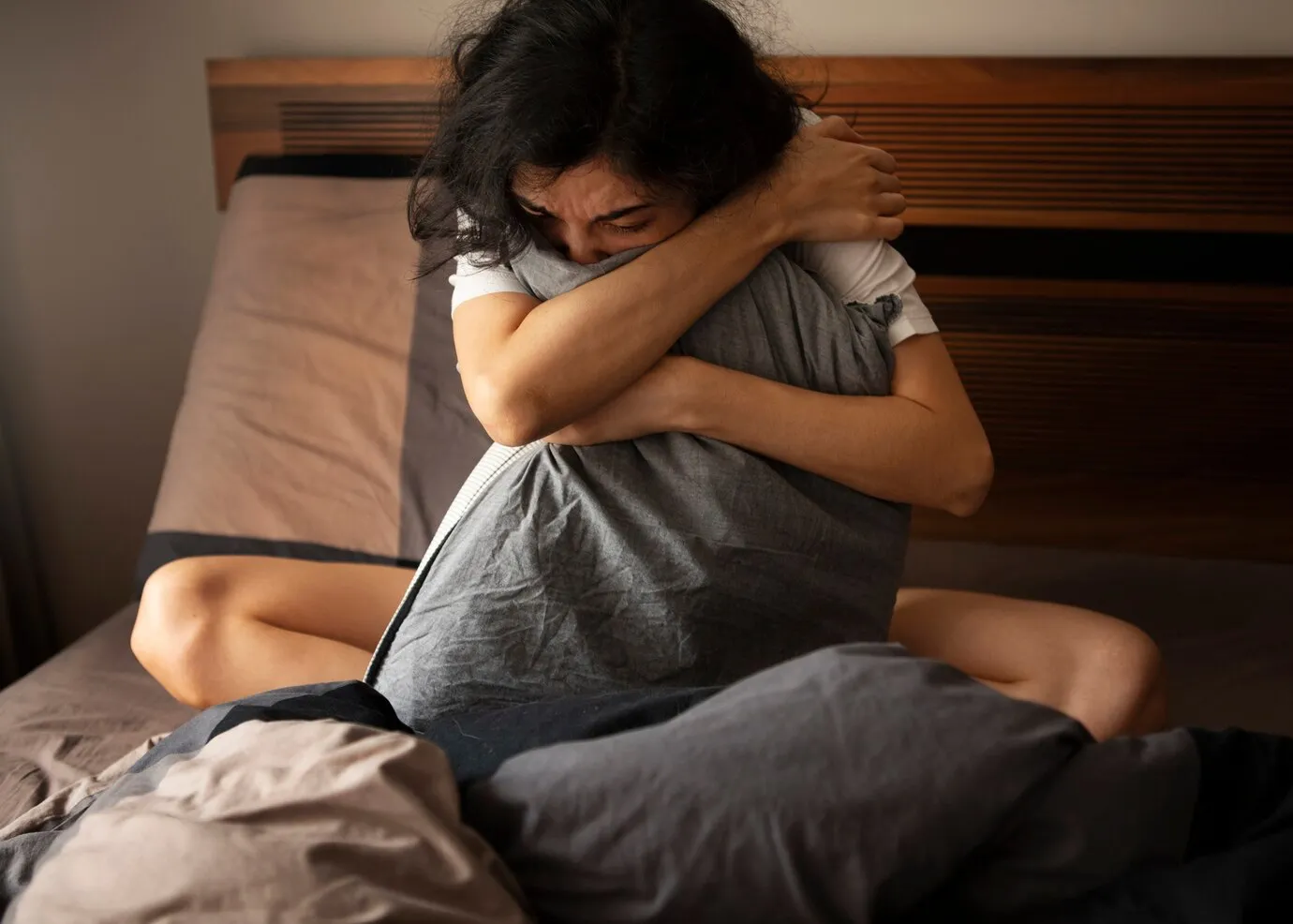Early Detection
Identifying symptoms of depression early is crucial for effective treatment. Our team prioritizes early detection to enable timely interventions, giving patients a better chance at recovery.
Identifying symptoms of depression early is crucial for effective treatment. Our team prioritizes early detection to enable timely interventions, giving patients a better chance at recovery.
Our experienced team of psychiatrists, psychologists, therapists, pharmacists, and nurses work together to create comprehensive, personalized treatment plans. This collaborative approach ensures that each patient receives well-rounded care tailored to their unique needs.
Every patient’s experience with depression is different. We craft individualized treatment plans grounded in the latest research and best practices to ensure our patients receive the most effective care possible.
At BMHH, we offer individual sessions with a psychiatrist for initial screening and assessment. These sessions are crucial for developing a comprehensive understanding of each patient's mental health needs and creating a personalized treatment plan. By conducting thorough evaluations and providing expert guidance, our psychiatrists ensure that every patient receives the most appropriate and effective care tailored to their unique situation.
BMHH provides a wide range of comprehensive therapy options tailored to our patients' needs. We offer individual sessions, art therapy, and music therapy. For individual therapy, we specialize in Cognitive-Behavioral Therapy (CBT), Satir Transformational Systemic Therapy (STST), and Eye Movement Desensitization and Reprocessing (EMDR). These methods help patients build coping skills, enhance emotional regulation, and process trauma. By offering such a diverse array of therapies, we ensure personalized care that effectively supports each patient's path to mental health and recovery.
Deep Transcranial Magnetic Stimulation (dTMS) is one of the premier services offered at BMHH, providing a cutting-edge, non-invasive treatment option for depression. dTMS utilizes magnetic fields to stimulate specific brain regions involved in mood regulation, targeting deeper and broader areas of the brain compared to traditional TMS. Our hospital's integration of dTMS into our mental health services offers an effective option for patients, particularly those who have not responded well to conventional treatments.
What is it?
Major Depressive Disorder (MDD) is a mood disorder characterized by persistent feelings of sadness, loss of interest in activities, and a variety of emotional and physical problems. It affects how you feel, think, and handle daily activities. MDD can range from mild to severe, impacting daily life and functioning.
Symptoms
How is it diagnosed?
MDD is diagnosed through a combination of clinical evaluation and patient history. A healthcare provider will assess symptoms, their duration, and their impact on daily life. Diagnostic criteria from the DSM-5 (Diagnostic and Statistical Manual of Mental Disorders) are often used, requiring at least five symptoms to be present for a minimum of two weeks.
How is it treated?
Treatment for MDD often involves a combination of psychotherapy and medication. Cognitive Behavioral Therapy (CBT) and Interpersonal Therapy (IPT) are common psychotherapeutic approaches. Antidepressant medications, such as SSRIs and SNRIs, are frequently prescribed. Lifestyle changes, including regular exercise and a healthy diet, can also support treatment.
What is it?
Persistent Depressive Disorder, also known as dysthymia, is a chronic form of depression where a person experiences a low mood for most of the day, more days than not, for at least two years. While symptoms may be less severe than major depression, they are long-lasting.
Symptoms
How is it diagnosed?
Diagnosis involves a clinical evaluation where a healthcare provider assesses the duration and consistency of symptoms. The DSM-5 criteria for dysthymia include a depressed mood for most of the day, more days than not, for at least two years, along with at least two other symptoms of depression.
How is it treated?
Treatment typically includes psychotherapy, such as CBT, to help manage symptoms and develop coping strategies. Antidepressant medications may also be prescribed. Long-term treatment and support are often necessary to manage this chronic condition.
What is it?
Bipolar disorder is a mental health condition characterized by extreme mood swings that include emotional highs (mania or hypomania) and lows (depression). These mood swings can affect sleep, energy, behavior, judgment, and the ability to think clearly.
Symptoms
How is it diagnosed?
Diagnosis involves a thorough psychiatric evaluation, including a detailed history of mood swings and their impact on daily life. The DSM-5 criteria for bipolar disorder require the presence of at least one manic or hypomanic episode, and often depressive episodes, for diagnosis.
How is it treated?
Treatment usually includes a combination of mood stabilizers, antipsychotic medications, and psychotherapy. Lithium is a common mood stabilizer used to treat bipolar disorder. Therapy focuses on managing symptoms, developing coping strategies, and maintaining a stable mood.
What is it?
Seasonal Affective Disorder (SAD) is a type of depression that occurs at a specific time of year, usually in the winter when there is less natural sunlight. It can cause significant mood changes and affect daily functioning.
Symptoms
How is it diagnosed?
Diagnosis is based on the timing and recurrence of depressive episodes, typically during the fall and winter months for at least two consecutive years. A healthcare provider will also evaluate the severity of symptoms and their impact on daily life.
How is it treated?
Treatment options include light therapy, which involves exposure to bright artificial light to compensate for the lack of natural sunlight. Antidepressant medications and psychotherapy can also be effective. Lifestyle changes, such as spending more time outdoors and maintaining a regular exercise routine, may help alleviate symptoms.
What is it?
Postpartum depression is a type of depression that can occur in women after giving birth. It is more severe and long-lasting than the "baby blues," which are common and usually resolve within two weeks after delivery.
Symptoms
How is it diagnosed?
Diagnosis involves a thorough evaluation by a healthcare provider, considering the timing of symptoms and their severity. A detailed history and possibly a screening questionnaire can help identify postpartum depression.
How is it treated?
Treatment may include psychotherapy, such as CBT or IPT, and medication, like antidepressants, that are safe for breastfeeding. Support groups and counseling can also be beneficial for new mothers.
What is it?
Premenstrual Dysphoric Disorder (PMDD) is a severe form of premenstrual syndrome (PMS) characterized by significant mood disturbances and physical symptoms that occur in the luteal phase of the menstrual cycle and improve within a few days after menstruation begins.
Symptoms
How is it diagnosed?
Diagnosis involves tracking symptoms over at least two menstrual cycles to confirm their timing and severity. A healthcare provider will also assess the impact of symptoms on daily life and functioning.
How is it treated?
Treatment options include lifestyle changes, such as regular exercise and a healthy diet, as well as stress management techniques. Medications, such as SSRIs or hormonal treatments like birth control pills, can also be effective. Cognitive-behavioral therapy may help manage symptoms.
What is it?
Treatment-resistant depression (TRD) is a form of depression that does not respond adequately to standard treatments, such as antidepressants and psychotherapy. Patients with TRD continue to experience significant depressive symptoms despite multiple treatment attempts.
Symptoms
How is it diagnosed?
Diagnosis involves a comprehensive evaluation to confirm the lack of response to at least two different antidepressant treatments of adequate dose and duration. A healthcare provider may also assess underlying conditions that could contribute to treatment resistance.
How is it treated?
Treatment may involve higher doses of medications, combinations of different medications, or alternative treatments such as electroconvulsive therapy (ECT), deep transcranial magnetic stimulation (dTMS), or ketamine infusions. Psychotherapy and lifestyle changes remain important components of treatment.
It's important to consult a doctor if you experience:
Early intervention can improve outcomes and prevent symptoms from worsening. If you or someone you know is experiencing these symptoms, seeking professional help is crucial.
When to Get Emergency Help
Seek emergency help immediately if you or someone you know has:
In these situations, immediate medical attention is necessary to ensure safety and proper care. Do not hesitate to call emergency services or go to the nearest emergency room if there is a crisis.

The Comprehensive Depression Center at BMHH is dedicated to early detection, multidisciplinary team (MDT), and personalized evidence-based treatment. We aim to improve outcomes by having specialists and psychiatrists identify depression symptoms early. Our team consists of various mental health professionals who work together to provide comprehensive care tailored to each patient. By combining the latest research with individualized treatment plans, we strive to support patients on their path to recovery and mental wellness.



Feeling overwhelmed, sad, or anxious? It is important to check in on your mental health. Our free, confidential depression screening test can help you understand your feelings and find the support you need. Take the first step towards well-being today.
Take the test

Depression can affect people of all ages, but the way it manifests and the leading causes can differ significantly. Here's a breakdown of depression across four age groups.
Learn moreDepression is a multifaceted condition, often mistakenly viewed as a single entity. In reality, it manifests in various forms, each with distinct characteristics and treatment requirements. Recognizing these differences is essential for understanding and addressing the complexities of depression effectively.

 Bipolar
Disorder
Seasonal
Affective Disorder (SAD)
Postpartum
Depression
Bipolar
Disorder
Seasonal
Affective Disorder (SAD)
Postpartum
Depression

 Premenstrual
Dysphoric Disorder (PMDD)
Premenstrual
Dysphoric Disorder (PMDD)
Depression is a serious mental health condition that can affect anyone. While feeling sad or down is normal, persistent feelings of sadness, hopelessness, or worthlessness might indicate depression. Other common symptoms include changes in appetite, sleep, energy levels, and difficulty concentrating. If you're experiencing several of these symptoms for more than two weeks, it's important to seek professional help.
While there's no cure for depression, it is treatable. Many people experience significant improvement with a combination of therapy, medication, lifestyle changes, and support
Treatment for depression typically involves psychotherapy (talk therapy), medication, or a combination of both. Psychotherapy includes various approaches like Cognitive-Behavioral Therapy (CBT), Satir Transformational Systemic Therapy (STST), and Eye Movement Desensitization and Reprocessing (EMDR). Medication often involves antidepressants. The most effective treatment plan depends on the individual's specific needs and the severity of their depression.
The decision to use medication is made on an individual basis. It's important to discuss the potential benefits and risks of medication with your doctor.
The length of treatment varies depending on the individual and the severity of their depression. Some may feel better within a few months, while others may need longer-term treatment.
Maintaining a healthy lifestyle, continuing with recommended treatment, building a strong support system, and monitoring for early signs of depression can help prevent relapse
Yes, we prioritize the confidentiality of our patients. All information shared with our staff is kept strictly confidential.
During your first visit, you will meet with a mental health professional who will conduct a comprehensive assessment to understand your symptoms and develop a treatment plan.
We accept a variety of insurance plans. Please contact our center to verify if your insurance is accepted.
Talk to Doctor
Call Us
Line BMHH